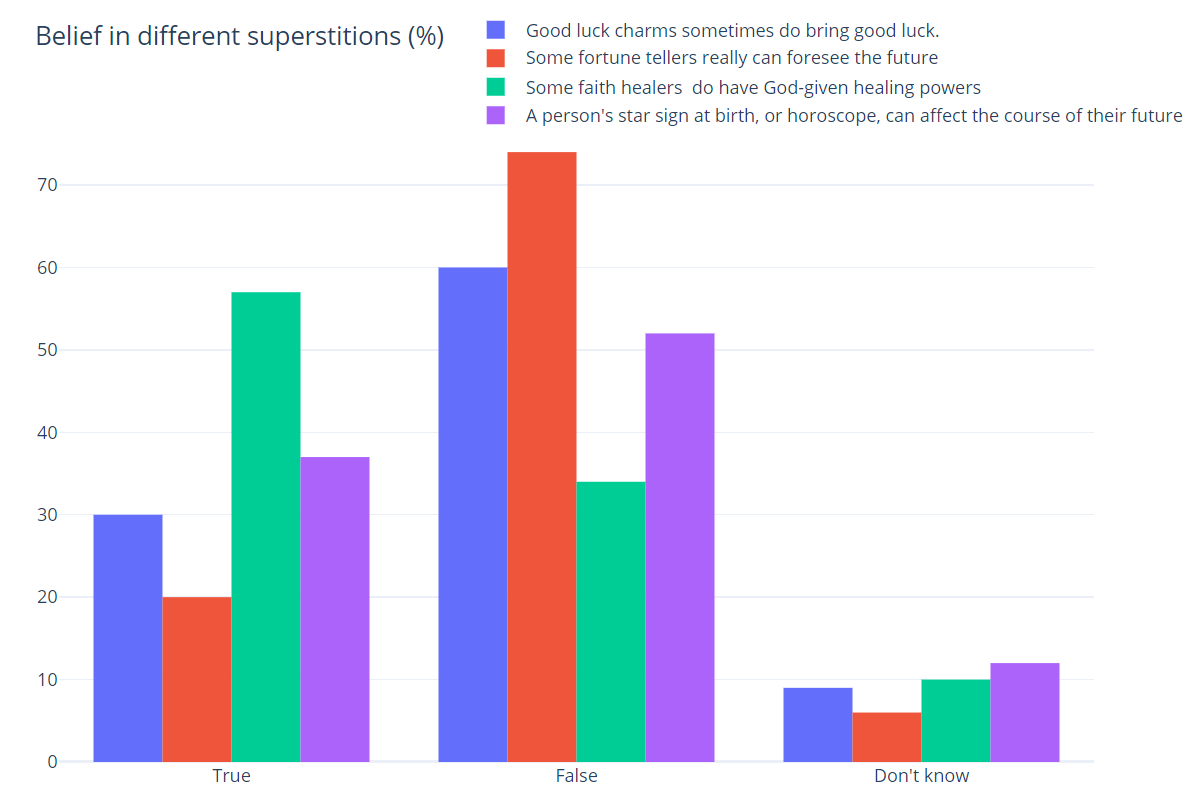
Georgian folklore is filled with stories of demons and devils; yet, everyone knows children’s stories are just that. However, new opinion polling from the ISSP Survey on Religion suggests that the vast majority of Georgians believe in the supernatural.
The study, which was conducted in 2019 by CRRC Georgia, asked about whether people think the following statements are true or false:
- Good luck charms sometimes do bring good luck;
- Some fortunetellers really can foresee the future;
- Some faith healers do have God-given healing powers;
- A person’s star sign at birth or horoscope can affect the course of the future.
Overall, 91% of the public reported that at least one of the above statements was true. Belief in faith healers was most common, with 57% reporting this was true. Belief in horoscopes (37%), good luck charms (30%), and fortune-tellers (20%) were less common.

Almost half (48%) the public also said they believed that ancestors had supernatural powers. A third (35%) said they did not believe this, and the remainder (16%) were uncertain.
Further analyses of the data shows few differences in the number of superstitious beliefs people hold in different social and demographic groups.
People with and without a higher education reported belief in a similar number of the above superstitions. Similarly, there was no difference between people in rural and urban areas. Older and younger people also held similar views.
The only statistically significant difference present in the data was with regard to people who are more religious, who believed in more superstitions on average while controlling for other factors.
Even though almost everyone in Georgia believes in at least some superstition, most people also think people should put more faith in science. The study asked whether people agreed with the statement: ‘We trust too much in science and not enough in religious faith’. Only a quarter of the public (25%) agreed, 29% neither agreed nor disagreed, and almost half the population (46%) disagreed.
That is, while most people in Georgia believe in the supernatural, a plurality also put some faith in science.
Note: The above analysis is based on an ordinary least squares regression analysis, where the dependent variable is the number of supernatural beliefs a person reported believing. The independent variables are gender, age group, ethnicity, religious affiliation, settlement type, level of education, and a religiosity index. The data used in the blog is available here.
The views presented in this article do not reflect the views of CRRC Georgia or any related entity.








